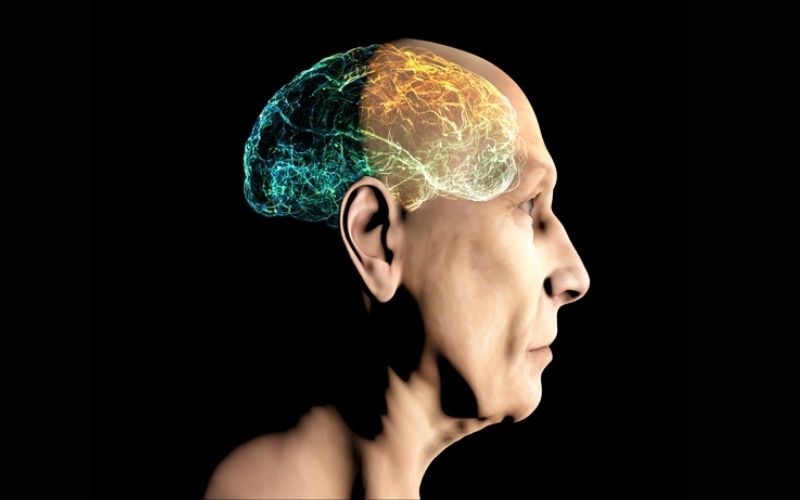Your Memory Deteriorates As You Age If You Don’t Do This Simple Action Daily

“Where are my keys?
“I forgot where I parked…”
“What was I saying?”
At some point, you’ve most likely said these exact words.
No need to fret right now, but as you age, you might want to take some precautions to increase your span of memory.
There are many reasons that your memory can decline over time and below we will discuss the main causes that lead to memory loss, as well as, what you can do about it to slow memory decline.
The main causes of memory loss
Your brain volume naturally shrinks
Over time, it is natural for our brain volumes to shrink, meaning that each year a bit of our memory is naturally declining.
Your hippocampus is where the majority of your memories are stored and as we age, and it shrinks over time which is where you will also begin to see signs of Alzheimer’s or dementia.
As this is naturally occurring there isn’t much to be done here besides partaking in activities that increase our memory.
Specific health conditions
Unlink the natural shrinkage of our hippocampus, there are other health conditions that lead to memory loss that can be controlled.
- According to the American Heart Association, high blood pressure is associated with a higher risk of age-related memory loss that can lead to dementia later in life over time. Hypertension is known to narrow and block essential arteries that will eventually affect the brain. These can be controlled by keeping your blood pressure at a manageable level and reducing stress.
- The formation of amyloid-beta protein, which is a key component in the development of Alzheimer’s disease is also toxic to your brain via elevated cholesterol. In order to control your cholesterol, you’re able to better your diet and nutrition.
- Sleep apnea, insomnia, and irregular sleep patterns also cause harm to your brain as it is not able to properly rest and is caused unnecessary stress. This can be controlled by creating a normal sleep schedule of around 4.5-6.5 hours per night.
- Depression and mental illness take a toll on your brain regularly throughout the day. By implementing self-care into your routine, you’re able to reduce mental stress and manage symptoms of depression to prevent brain deterioration.
- Surprisingly, your hearing may also be a sign of memory loss as research in The Hearing Journal conducted a study in 2019 on the relation of troubled hearing in relation to dementia. By checking in with a doctor if you experience hearing loss you’re able to catch and take preventative action before necessary to slow down memory loss.
Hormonal changes within aging
Ever heard of pregnancy brain or memory loss through menopause.
For women especially, hormones play an important role in our memory.
If there are any causes of dips in estrogen levels, women will tend to experience memory loss during that time.
How to slow memory loss as you age
Many of the aforementioned health conditions can play a factor in slowing memory loss as you age, but regardless of if you have any of the above conditions, there are specific habits that can be implemented into your routine to help as well including:
- Get Physical. Many of our brain functions are able to be increased through physical activity and it has been proven through the Tsimane Tribe in the Amazon. The more regular physical activity one has, the better their mental and cognitive functions tend to be.
- Be More Mindful. Through the practice of mindfulness, you’re able to reduce stress which is toxic to your brain causing many of our bodily and mental functions to reduce productivity and natural abilities.
- Better Your Diet. The food that we eat plays an integral part in our mind’s ability to retain information and perform at its peak state. By eating a diet of high fiber and low sugar you’re able to increase your brain’s function. Mediterranean-style dishes are great for this as well since it includes whole grains, healthy fats, and is loaded with fruits and veggies.
- Limit How Much You Sit. It is naturally more difficult to form more memories as you’re sitting, especially for an extended amount of time. Be sure to take breaks from your desk and leisure activities in order to stimulate your mind.
- Get Better Sleep. Sleeping allows your mind to clear itself of unnecessary information and rest properly, by getting better sleep you’re able to rest your mind properly in order for it to function better while you’re awake. It is also able to help you reduce anxiety.
RELATED: How Deep Sleep Completely Rewires Your Brain and Reduces Anxiety
In conclusion
Memory loss is natural as we age, however, there are ways that we are able to slow the signs and symptoms by taking better care of our health through our habits of nutrition, mindfulness, and sleep.





